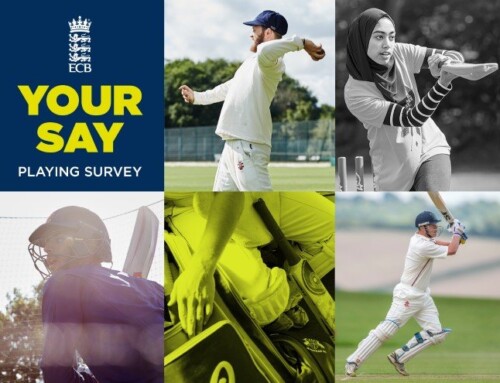Child Safeguarding and Welfare Policy
Reed Cricket Club – Child Safeguarding and Welfare Policy Statement
Reed Cricket Club is committed to ensuring that all Children and Young People (Aged under 18) who play cricket have a safe and positive experience.
Reed Cricket Club is committed to providing a safe and secure environment for youth and junior cricketers. To help us provide that environment the Club Committee has formally adopted a set of Child Safeguarding and Welfare Policies which put in place a framework safeguarding all juniors who play, train or watch cricket at Reed Cricket Club
We will do this by:
· Recognising that all Children and Young People participating in cricket (regardless of age, gender, race, religion, sexual orientation, ability or disability) have a right to have fun and be protected from harm in a safe environment.
· Ensuring that individuals working within cricket at or for our club provide a safe, positive and fun cricketing experience for Young People.
· Adopting and implementing the England & Wales Cricket Board (ECB) “Safe Hands – Safeguarding (Welfare) of Young People in Cricket” policy and any future versions of the policy. (This sets out a framework to fulfill the ECB’s commitment to good practice and the protection of Young People in its care within Cricket.)
· Ensuring that all people who work in cricket at or for our club, (such as Officials, Volunteers, Team Managers, Coaches etc.) understand that the Safe Hands Policy applies either directly or indirectly to all individuals working within Cricket (in a paid or voluntary capacity) according to their level of contact with
Young People in Cricket. (If anyone has any doubt as to the relevance to their own role, they should contact The Club’s Child Safeguarding Officer)
· Ensuring that all individuals working within cricket at or for the club are recruited and selected in accordance with ECB guidelines, and are subject to an enhanced CRB check.
· Developing and implementing policies and procedures which ensure that everyone (e.g. Volunteers, Coaches, Umpires, Scorers, Team Managers etc) understand, accept and are supported in their role and responsibility with regard to the Duty of Care for Young People.
· Ensuring that all individuals working within cricket at or for the club are provided with support through education and training so that they are aware of and can adhere to good practice and code of conduct guidelines defined by both the ECB, and by the club.
· Appointing a Child Safeguarding Officer and ensuring that they attend all current and future training modules required by the ECB & the NSPCC, so that they have the necessary skills to be able to undertake their role effectively.
· Ensuring that the names & contact details for The Club’s Child Safeguarding Officer, and their role
as the first point of contact for parents, children & volunteers within the club, as a local source of procedural advice for the club, its committee & its members, as the main point of contact within the club for The ECB County Safeguarding Officer and The ECB Child Protection Manager, and
as the main point of contact within the club for relevant external agencies in connection with child welfare,
is publicised to everyone within the club.
· Ensuring that correct and comprehensive reporting procedures exist for raising and managing child welfare concerns. (Such procedures recognising the responsibility of the statutory agencies and complying with The Local Child Protection Committee Procedures.)
· Providing everyone connected with the club (including parents, children and volunteers) with the opportunity to voice any concerns which they have (about possible suspected child abuse, and/or about poor practice) to the Child Safeguarding Officer.
· Ensuring that individuals working within cricket at or for the club are appropriately trained so that they are aware of how to respond to / manage any child welfare issues which may come to light. (Recognising that it is not the responsibility of those individuals working in Cricket to determine if abuse has taken place, but that it is their responsibility to act upon and report any concerns, so that child protection experts can then fulfill their responsibility to determine whether or not abuse has taken place.)
· Ensuring that all suspicions, concerns and allegations are taken seriously and dealt with swiftly and appropriately. (In accordance with pre defined child welfare procedures as defined by the ECB, Statutory agencies and The Area Child Protection Committee guidelines)
· Ensuring that access to confidential information relating to child welfare matters is restricted to the Club’s Child Safeguarding Officer and the appropriate external authorities as specified within ECB Child Safeguarding and Welfare procedures.
Reed Cricket Club – Transport and Photography / Video and Changing Room Policies
Transport to matches and practice sessions
Reed Cricket Club policy is that parents / guardians or other responsible adults* are responsible for transporting players to and from all matches and practice sessions and therefore the club will not be registering private vehicles for the transportation of individuals in connection with any fixtures or practice sessions arranged by the club.
The implementation of this policy is not intended to exclude any player from participation, and Parents or Guardians should contact The Club Safeguarding Officer if they have any problems with the transportation of players to matches or practice sessions.
* Note: The term “responsible adult” refers to a person who has been chosen by the parent / guardian of the child or young person being transported, and under such circumstances the parent & responsible adult are deemed to have made a private arrangement.
Photography / Video
1. All youth and junior players & their parents will be provided with a copy of the club photography / video policy, which outlines the responsibilities of parents and the club, and all parties will be expected to adhere to this policy at all times.
2. Reed Cricket Club recognises the need to ensure the safeguarding, welfare and safety of all Young people (under 18) in Cricket. The Club will follow the guidance issued by the England & Wales Cricket Board (ECB) on the use of images of young people, a copy of which is available from the Club Safeguarding Officer, or from the ECB child welfare website www.ecb.co.uk
3. As part of this commitment, the club (and its officials / coaches etc) will not themselves take photographs / video or other images of young people, nor will the club authorise the taking of any images of young people without the prior written consent of the Parent / Guardian, and the Young Player (for those between the age of 12-18).
4. The club understands that there may be circumstances under which a parent would not wish their child to be photographed. It is therefore the responsibility of the parent concerned to ensure that their child is not videoed or photographed. Parents are advised that the club is unable to supervise individual children (with respect to them being photographed / videoed) during cricket activities or competitions, particularly in locations which are open to members of the general public.
5. The recording of images of young people by ECB qualified cricket coaches, as part of a legitimate coaching programme within the club will be permitted to occur, subject to prior written consent of the parent and the young person being obtained, and subject also to the qualified coach undertaking the recording, analysis and storage of any such images strictly in accordance with all ECB coaching guidelines in force at the time.
6. The club will prohibit the use of all photographic equipment in changing rooms (including mobile phones which have the capability to take photographs)
7. If photographs (e.g. team or action shots) are to be submitted to the press, be published within club literature or on the Club website, names will not be stated alongside photographs & vice versa. The only exception to this will be where a specific need exists to identify one individual due to a notable individual occurrence / achievement. In any such occurrence, written parental consent will be obtained by the club in advance of publication, on a “one off” basis.
8. The Club will take steps to ensure that any images taken by the club itself, or authorised to be taken by the club will be used solely for the purpose they are intended, which is the promotion and celebration of the club’s cricketing activities, or as a part of a legitimate programme of coaching activity approved by the Coaches’ coordinator at the Club.
9. If you become aware that any images are being used inappropriately you should inform the Club Safeguarding Officer immediately.
Changing Room Policy.
1. All youth and junior players & their parents will be provided with a copy of the club changing room policy, and all players will be expected to adhere to the policy at all times.
2. Parental consent must be given if young players (under 16) are to share changing and/or showering facilities with adults.
3. Youth and Junior players (under 16) who do not wish to change or shower with adults will be under no obligation to do so & will be encouraged to change / shower at home.
4. Players who are under 10 will be required by the club to change clothes at home, due to the club being unable to meet the current ECB guideline which requires two members of staff of the same sex as the players to supervise under 10 players whilst they change.
5. All parents will be made aware that there are circumstances under which players under the age of 16 years may find themselves changing clothes / showering in the presence of persons over 18 years – particularly if youth and junior players participate in senior cricket matches / practice sessions. If any parent is not comfortable with this arrangement then the parent must ensure that their child changes and / or showers at home. The parent must also ensure that the youth or junior player does not enter changing facilities at any time if parental consent has not been given.
6. Adults working with young teams, (i.e. whilst the youths and juniors are in their care for a youth or junior match / practice session) including, coaches or umpires will not change or shower at the same time using the same facility as young players (under 16).
7. Mixed gender teams must have access to separate male and female changing rooms, or be provided with separate times when they can change in single sex groups.
8. All photographic equipment, (including mobile phones which have a capability to take photographic images) will be totally prohibited in all changing rooms at the club.
9. If the club has disabled players with specific needs, the Coach or the Club Child Safeguarding Officer will involve them (and their carer) if they wish to be assisted to change and will ensure that they provide full consent to any support or assistance required.



